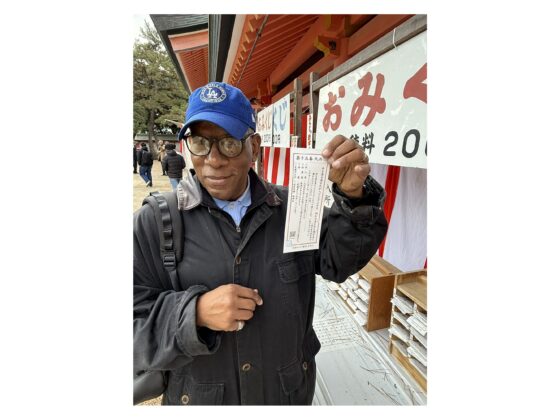By Gwen Mellor (EMBA ’13) and Jen Coleman (Executive Director, Alumni Career Services)
With the goal of being a resource to all of its graduates, at all stages of their careers, Alumni Career Services (ACS) is introducing a new coaching offering for degreed Darden alumni: Executive Coaching. ACS continues to provide complimentary career coaching for alumni in transition; executive coaching is for alumni that want to improve performance and satisfaction in their current roles.
Perhaps you’re at the point in your career where you are facing some extremely complex issues. You think that you can benefit by consulting with a coach to work through some of the challenges you’re facing, but to date, you haven’t been sure how to go about identifying the right coach. Through ACS’ new Executive Coaching program, you’ll have the opportunity to work with Darden-approved professionals at Darden-supplemented rates. Once you’ve reached out to ACS to coordinate a coaching engagement, you will be asked to select one of the coaches with whom Darden is contracting. How will you decide between the coaches, all of whom have strong credentials and all of whom appear like they could offer value and a rewarding coaching experience? Where do you start?
Know What Executive Coaching Is and Isn’t
The preliminary step to choosing a coach is to first get a grasp on what coaching really is. Coaching engagements are, at their core, focused on change. The bulk of executive coaching is concentrated on work and professional performance and the changes that clients seek in order to elevate their professional effectiveness.
To better understand coaching, it can be helpful to distinguish it from other types of relationships. Coaching isn’t mentoring, therapy or consulting. Master Coach Ed Batista offers a succinct differentiation when he shares that mentors, therapists and consultants are typically experts from whom clients are seeking advice or expertise. Skilled coaches, on the other hand, help clients discover and decide which approach, solutions and paths are right for them. Coaches help clients come to understand themselves better, which in turn allows them to better identify decisions and choices they want to make. Coaches do not enter into engagements believing that they are the experts; they view themselves as clients’ equal partners.
Know the Responsibilities of the Coach and the Client
Along these lines, it’s important to understand that coaching sessions are driven exclusively by clients, not by coaches. Clients determine what issues they want to tackle, and what work they want to do throughout the engagement. Coaches help clients hold themselves accountable. They ensure that important issues are addressed, but ultimately, clients are responsible for the bulk of the work. Coaches provide support by being candid and direct. They also provide value by challenging clients, with the clients’ best interests at heart.
Conduct Due Diligence
You’ve been offered an opportunity to work with one of a handful of Darden-endorsed coaches. Take some time to read the coaches’ bios and research their professional backgrounds. Something about their experience may jump out at you; or, you may have a gut instinct as to which coach you might prefer to work with. Despite what might seem logical, it is not important to work with a coach who has walked the same path that you have. In fact, many coaches will tell you that the best coaching relationships often grow out of two professionals who come from very different backgrounds.
Once you’ve identified a preferred coach, ACS will make an email introduction. From there, you should plan to reach out to schedule a phone interview, which typically lasts about 30 minutes. In preparation for that call, you might send the coach your CV, spend some time identifying your goals for the engagement and think about what changes you are seeking to make.
During your phone call with your prospective coach, you might consider touching on the coach’s path to coaching, coaching practice, and his/her self-awareness and preferences. You might ask:
- Why did you chose to become a coach? What sort of training do you have?
- What is your approach to coaching?
- With what kinds of clients have you most enjoyed collaborating?
- What are your expectations of clients?
- What kinds of client behaviors have proven to be most challenging for you?
- Do you have any restrictions or boundaries as to scheduling coaching sessions?
- What is your rate?
- How do you stay informed of best practices?
- Have you turned away any potential clients, and have you discontinued any client engagements?
Select the Coach with Whom You Would Like to Work
After spending time preparing for and interviewing a potential coach, it is likely that you will be clear about whether or not you have found your coach. You should feel 100 percent confident in your chosen coach and why he or she is the best person to help you reach your goals.
If the phone interview with your prospective coach did not go as you’d hoped — if you did not feel a sense of fit — feel free to check in with ACS and interview another one of Darden’s preferred coaches. The more closely you collaborate with ACS, and the more effort that you extend on the front end to identify the right coach for you, the more likely it is that the coaching engagement will be both rewarding and enable the change that you seek.
Trust the Process and Anticipate the Change
The Darden community is fond of urging one another to “trust the process.” That refrain rings true with regard to coaching. You should anticipate that you will achieve the goals that you set for yourself by working through the process that your coach lays out. It’s cliché to say that “change is hard,” but it is. The more open that you are to establishing a deep relationship with a coach, the more change you can effect.
To learn more about Executive Coaching from Alumni Career Services, please visit our website. To schedule an appointment with a coach, please email alumnicareerservices@darden.virginia.edu





